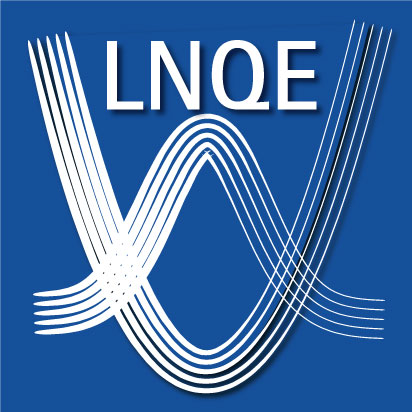The German Research Foundation (DFG) has granted the Leibniz University an in Lower Saxony unique high-tech instrument. With the so-called 4-probes STM / SEM with a worth of 1.25 million euros, microscopic studies and electrical conductivity measurements are possible on an atomic scale. Worldwide, there are currently only about 15 of these major instruments in use.
The physics and chemistry of nanostructures differs fundamentally from the ones of classic solid states. In the low-dimensional structures, quantum effects in the electronic structure and transport behavior play often a crucial role. Using a so-called 4-probes STM / SEM, which combined the advantages of a scanning electron microscope (SEM) with those of a scanning tunneling microscope (STM), it is possible to selectively locate and characterize such nanostructures on surfaces at the atomic scale. An individual contact with four separately controllable STM-probes also allows electrical conductivity measurements on these tiny structures.
Such a 4-probe STM / SEM was now applied successfully from the German Research Foundation (DFG) by Professor Herbert Pfnür and associate Professor Christoph Tegenkamp of Institute for Solid State Physics (ATMOS) of Leibniz Universität Hannover. The in Lower Saxony unique high-tech instrument with a prize worth 1.25 million euros is a clear unique selling point in the daily competition for research funding and is expanding the technical capabilities of scientists crucial.
The major instrumentation is to be placed in the recently opened research building of the Laboratory of Nano and Quantum Engineering (LNQE). There is a custom designed double-special lab with air-conditioning and vibration decoupled foundation for the optimal placement of the sensitive instrumentation. In addition to the work group Pfnür as the main users, the major instrumentation will be used in joint interdisciplinary projects with other working groups of the LNQE from electrical engineering, chemistry and physics.
Note to Editors:
For further information, please contact associate professor Christoph Tegenkamp from Institute for Solid State Physics by phone at +49 511 762 2542 or e-mail at tegenkamp@fkp.uni-hannover.de and Dr. Fritz Schulze Wischeler from the Laboratory of Nano and Quantum Engineering at telephone + 49 511 762 1601 4 or by e-mail at schulze-wischeler@lnqe.uni-hannover.de.






